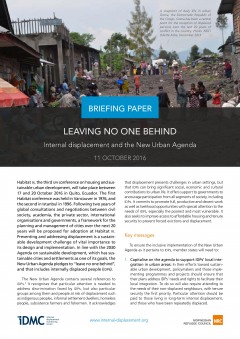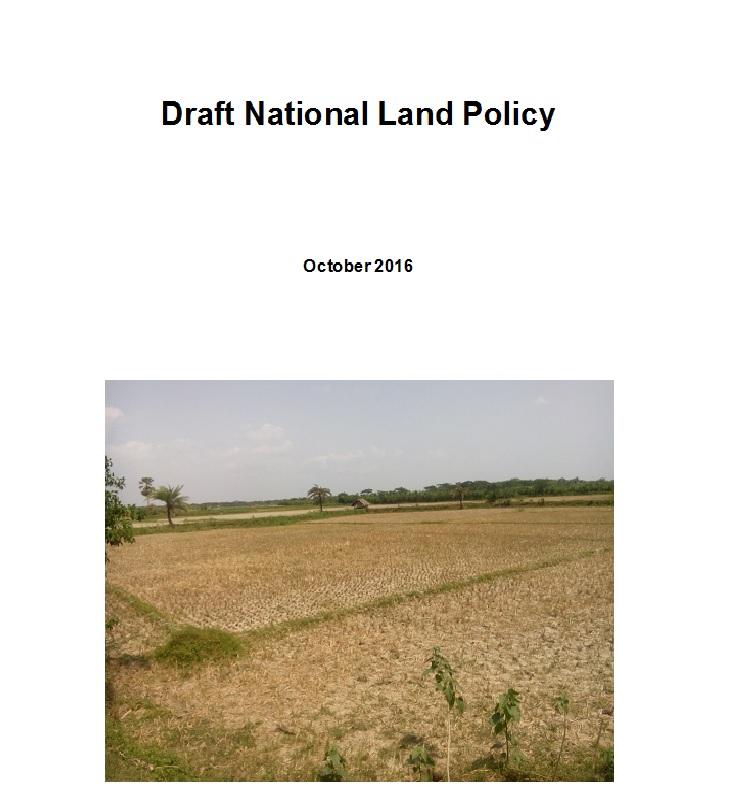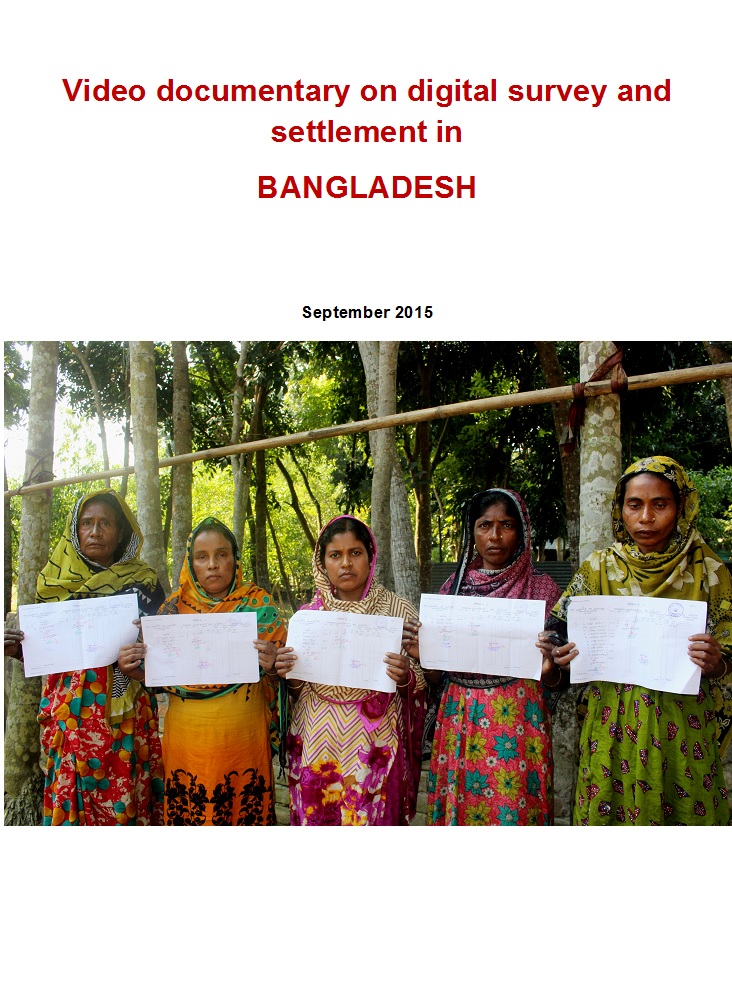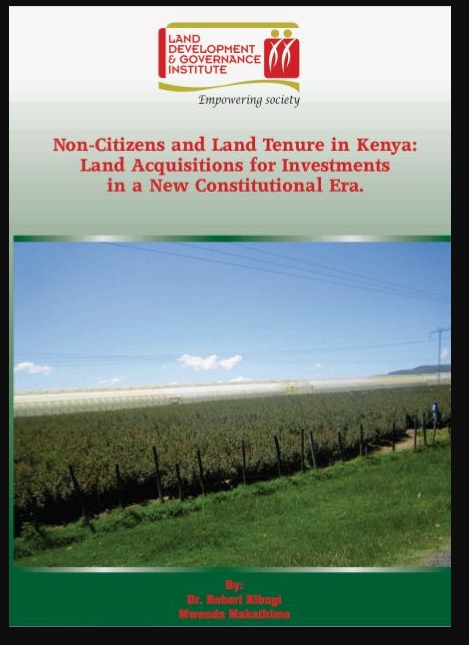Leaving no one behind: internal displacement and the New Urban Agenda
Many internally displaced people (IDPs) find refuge in cities. However, the scale of global urban internal displacement caused by violence, conflict, disasters and development projects is unknown. Cities struggle to accommodate IDPs since their movements are largely spontaneous, and some authorities may resist helping IDPs for fear of encouraging further influxes. Meanwhile, IDPs face displacement-specific challenges to rebuild their lives in urban settings and may be displaced again in the process due to lack of housing tenure security and violence and insecurity.












